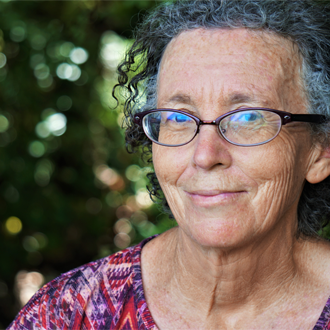
Can mammograms be used to detect heart disease in women?
Heart disease and breast cancer are two of the major causes of illness and death in Australian women. Women are not routinely screened for heart disease, but many do undergo mammograms for breast cancer screening. What if it was possible to do both in one scan?
This study will investigate whether a routinely conducted mammogram can be used to identify women at an increased risk of heart disease.
On a mammogram, it is possible to see calcium build-up within the blood vessels of the breast. This same build-up can be seen in the heart and is the basis for causing heart attacks.
Early studies have shown some association between breast arterial calcification and heart disease, but the cause and consequence of this have not been properly studied. We would like to better understand this and in doing so, hopefully, identify a quick and easy way to assess risk in women undergoing routine breast screening mammograms.
Who can participate?
You may be eligible for this study if you are a female aged 40–80.
Enquire about participating in this study
This research is being conducted by the Baker Heart and Diabetes Institute together with the Monash Cardiovascular Research Centre and Monash University.
What is involved?
Participation is simple.
As part of this study you will:
- recieve a free CT scan of your heart and a mammogram
(conducted at Monash Medical Centre, Clayton) - complete a questionnaire about your health
- have a blood test
- have repeat tests in 2 years.
What will happen with my information?
- Your CT scan will be assessed by a cardiologist and a radiologist for both heart and non-heart related findings.
- You will be notified of any abnormalities detected and follow-up with a doctor will be arranged.
- Your health information and blood test results will be used as part of our analysis.
- You will also be comprehensively reviewed by a specialist cardiologist who will screen you for cardiovascular disease.
Contact
If you are interested in participating or would like further information, please contact the study coordinators on:
More information
Cardiovascular disease (CVD) remains a major cause of illness and death in Australia. Current ways to assess CVD risk rely on the presence and absence of risk factors such as high blood pressure, high cholesterol and diabetes. These methods have been shown to underestimate CVD risk in women. Many women may be missing out on important preventative therapies due to this and we therefore require new ways to screen women for CVD.
Breast artery calcification (BAC) has been reported to be a novel marker for CVD in women which may allow doctors to identify women at greater CVD risk more accurately. BAC is the build-up of calcium in the blood vessels of the breast. It can be easily seen on mammography however it has not been found to be related to other diseases such as breast cancer. We are trying to determine whether BAC is in fact a marker of CVD in women and whether it can be routinely used by doctors.
A cardiac CT scan is a specialised X-ray test that allows you to look at the arteries of the heart. Using computer software, we can measure the plaque which blocks arteries, some of which are 'vulnerable plaque' meaning they are associated with future heart attacks. We can also measure other markers such as inflammation that can predict the development of plaque.
In this study, we will recruit patients to have a mammogram and a cardiac CT and then repeat these scans two years later. This will allow us to examine the association of BAC with coronary plaque presence and progression. We suspect that patients with BAC will have more plaque, inflammation and vulnerable (high-risk) plaque and these will progress on follow-up scanning compared to no BAC.

